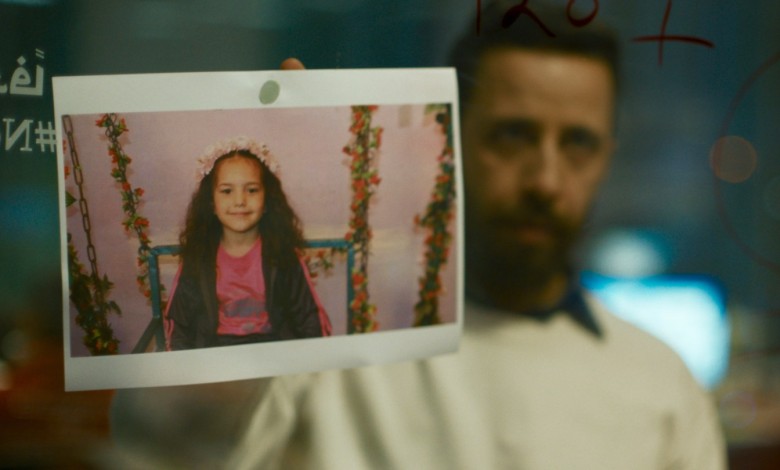Palestinian Films Are Suddenly Everywhere

When No Other Land won the Oscar for best documentary feature this year, the victory was bittersweet. Despite its global recognition, the film, which follows the displacement of Palestinian families in the West Bank, struggled to secure a U.S. distributor. The filmmakers eventually released the documentary themselves but faced political pressure along the way. In Miami Beach, the city’s mayor condemned the film as “propaganda” and attempted to strip funding from a cinema that dared to screen it.
The film’s release was ultimately a success — it played to sold-out houses and grossed some $2.5 million domestically — but the battle underlined how unwelcome Palestinian narratives seemed in the months following the October 7 attacks.
Less than a year later, the market looks very different. Films addressing Gaza and the Palestinian experience are now in demand across festivals and markets, with buyers actively seeking titles for North American release.
Annemarie Jacir’s historical drama Palestine 36, the country’s Oscar submission, will premiere in Toronto, with U.S. rights already secured by Watermelon Pictures. The distributor also picked up North American rights to Cherien Dabis’ Sundance hit All That’s Left of You, a multi-generational Palestinian drama that is Jordan’s official Oscar contender. And Kaouther Ben Hania’s real-life drama The Voice of Hind Rajab, about a 6-year-old girl killed in Gaza during an Israeli bombardment, premiered in Venice to roaring applause before heading to Toronto, with wide sales confirmed across Europe.

‘Palestine 36’
Courtesy of TIFF
“Palestine 36, All That’s Left of You and The Voice of Hind Rajab are probably the three biggest films ever to touch on the subject of Palestine,” says Watermelon Pictures co-founder Hamza Ali. “And they’re all coming at the same time.”
Sales agents say the market support, both commercial and political, for the films has been immediate.
“The response from buyers has been really, really strong,” notes Samuel Blanc, head of sales at The Party Film Sales, which is handling The Voice of Hind Rajab. “Not only do the distributors think there is a commercial potential [in the film], but they are very involved emotionally in the political message. All the distributors that are attached to the film already think it’s important for them to carry this political message as far as possible.”
For Watermelon Pictures founders Hamza and Badie Ali, both of Palestinian descent, that political message is inseparable from their company’s mission.
“Obviously, there’s a misrepresentation in film of our community, whether it’s Muslims or Arabs, for a long time,” says Badie Ali. “The most recent atrocities in Gaza really woke us up. We realized if we weren’t going to do this, no one was going to do it.”
Social media, they argue, has been crucial in shifting perceptions. “Some of the images that people have access to, historically they haven’t,” Badie continues. “That has really been the catalyst in shifting the conversation [around Palestinian issues]. After what we’re seeing on social media, I think the next step, and really what we’re focusing on, is using cinema as a way to deepen empathy and really bring light to other struggles.”
Still, the barriers to releasing Palestinian stories in the U.S. remain steep. “There aren’t a lot of distributors willing to take risks on these films, because they are political, and they do take a stance,” says Hamza Ali. But when Watermelon Pictures took on other Palestinian-themed projects, including the short film compilation From Ground Zero and The Encampments, a documentary on the pro-Palestinian student protest movement, “we were very familiar that no other distributor was going to support them.”
Badie Ali recalls both the resistance and the gradual shift in the market: “We’ve been pleasantly surprised that we haven’t gotten more pushback. There’s been some challenges. There have been groups that have threatened theaters if they play our films. Certain advertising outlets wouldn’t take ads for certain films, for really bogus reasons. But overall, I feel the industry has shifted as well.”

‘Put Your Soul on Your Hand on Walk’
Reves d’eau Productions
That shift is visible far beyond North America. At Cannes, Sepideh Farsi’s Put Your Soul on Your Hand and Walk, an essay film about Gaza photojournalist Fatima Hassouna, who was killed with nine family members in an Israeli airstrike on April 16, was snapped up by art house distributor Kino Lorber for U.S. distribution before the festival closed.
Not every project has found such traction. Blanc notes that Arab and Tarzan Nasser’s Once Upon a Time in Gaza, a darkly comic thriller that premiered in Cannes, struggled to secure buyers despite strong reviews. “The reaction from the market was much tougher than we expected,” he says. “The film is political, because it’s by Palestinian filmmakers, but it’s a dark comedy, a thriller, a Western — it mixes genres. I think what the market was hoping for, from filmmakers from Palestine, was something overtly political.”
Farsi has seen her film travel more widely than expected. Since Cannes, Put Your Soul on Your Hand and Walk has sold across most of Europe as well as to Japan, Australia, New Zealand and Canada. “With No Other Land, they finally distributed it themselves in the States, it was complicated,” she says, contrasting her experience with the Oscar winner.

‘The Voice of Hind Rajab’
Courtesy of TIFF
Blanc argues that political context is fueling demand as much as artistic merit. With limited reporting coming out of Gaza, films are filling a void. “I think one reason there is such interest in these films from buyers and audiences is that people feel that they need to do something,” he says. “We all feel powerless, and we all want to do something. And I think getting a film out there about it is part of what we can do.”
That urgency has extended to the U.S. market, where buyers who once stayed away are now stepping forward. “In Western Europe — countries like Italy, Spain — they have been sensitive to [Palestinian] subjects from the very beginning,” Blanc notes. “In the U.S., it’s opening now. It was really, really difficult to speak about Israel and Palestine a year ago, and I think people are starting to realize that it’s absolutely necessary to do so.”
For Ben Hania, the motivation is deeply personal. The Voice of Hind Rajab dramatizes the final hours of a young girl trapped under fire in Gaza. “I don’t know how to say this, but I feel like I did something,” she explains. “I wasn’t complicit, you know? I have no political power. I’m not an activist. I have one tool that I know, that I master a little bit — cinema. And at least in making this movie, I wasn’t silenced.”
This story appeared in the Sep. 3 issue of The Hollywood Reporter magazine. Click here to subscribe.
Source: Hollywoodreporter
HiCelebNews online magazine publishes interesting content every day in the movies section of the entertainment category. Follow us to read the latest news.
Related Posts
- Valeria Bruni Tedeschi in 'Duse.'
Erika Kuenka/Venice Film Festival
…
- Venice: ‘Inside Amir’ Follows a Man in Tehran on the Verge of Emigrating (Exclusive Trailer)
- ‘The Couple Next Door’ Season Two Is Headed to Starz — and Soon
- Justin Bieber’s ‘Swag II’ Has (Finally) Arrived
- Kurt Russell Joins ‘Yellowstone’ Spinoff Series ‘The Madison’





